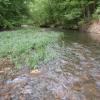New Delhi : Scientists world over have established that marine fungi is an effective and safe way to improve various skin-related issues.
Marine fungi are slowly and steadily becoming popular for their health benefits, their use in agriculture and most recently in the field of cosmeceuticals. Coined by Abbert Kligman in 1984, the term ‘cosmeceutical’ was derived from ‘cosmetic’ and ‘pharmaceutical’. Like cosmetics they are applied on the skin but they contain ingredients that influence the biological function of the skin.
Besides improving appearances, cosmeceuticals also deliver nutrients necessary for healthy skin. Of the 270,000 known natural products, 30,000 have been obtained from marine life. Out of these, 9 are approved as medical drugs and 13 are undergoing clinical trials. An important example is the discovery of an antibiotic, cephalosporin C, which was derived from a marine fungi Cephalosporium sp. in 2011.
“Improvements in our understanding of fungal physiology is necessary to successfully identify new substances from marine fungi for cosmeceuticals,” said Dr Sunil Deshmukh, from the TERI-Deakin Nanobiotechnology Centre, New Delhi, whose team has compiled data from various sources on benefits of marine life.
Several fungi-based products are already available in market - sun care products using Sea fennel, anti-cellulite skin care products using guam seaweed, and anti-ageing products based on sea algae which is a rich source of vitamins and minerals. Scientists have also isolated a substance that is more active than kojic acid (used in various skin whitening products) from a fungus.
Recently, two substances were extracted from marine fungus, Trichoderma sp. which showed antibiotic activity against one type of acne- causing bacteria S. epidermidis. This is significant as patients are becoming resistant to currently available anti-acne antibiotics. Therefore, there is a need to discover new bioactive substances which could fight off the bacteria causing acne which affects a large number of people.
Marine organisms release substances which are more efficient than oxybenzone (used in sunscreen). Oxidative changes are the main cause of skin ageing. Marine fungi are excellent antioxidants compounds. According to a recent study, a substance from brown algae was found to have considerably higher antioxidant than that of the commonly used synthetic butylated. Worldwide, nearly 1,00,000 fungal species are known and about 27,500 species have been reported in India. Marine organisms grow fast and are cost-effective in large quantities. Marine-derived fungi release may substances while performing their functions as decomposers, disease-causing organisms and even while attaching themselves to other organisms for mutual benefit. These substances are then utilized for various medicinal preparations which could range from fighting against infections to cancer medication.
In India too, anti-ageing skin care is becoming big business. About one-third of the global skin care market caters to anti-ageing creams and lotions. How soon and how much your skin ages depends on one’s genetic makeup but other factors like smoking, excessive alcohol consumption, poor nutrition and pollution and exposure to the sun influence ageing.
However, the use of fungal secondary metabolites, in particular from the marine environment, remains relatively unexplored for cosmetic applications. Salt water makes up almost 97% of the available water and approximately half of the total biodiversity on the earth is located in salt-water bodies. Though many areas are easily accessible, deep seas that are relatively unexplored represent 95% of available area. The future of cosmeceuticals holds much promise and it is only left to see whether marine life will become the next revolution in skin care.
The team which conducted the review study on marine fungi included Dr. Shivankar Agrawal and Dr. Alok Adholeya from the TERI-Deakin Nanobiotechnology Centre; Dr. Colin J. Barrow Deakin University, Victoria, Australia. The review has been published in journal Phytochemistry Letters.
Twitter Handle: @monikaksrivast1
TAGS |
Cosmeceutical in hindi, marine life in hindi, marine fungi in hindi, hyperpigmentation in hindi, acne in hindi, anti-ageing in hindi |



